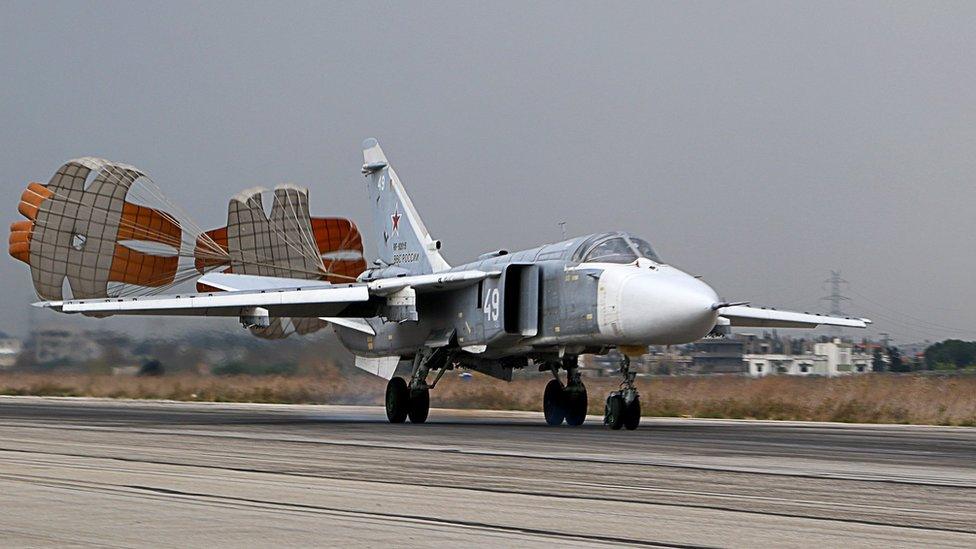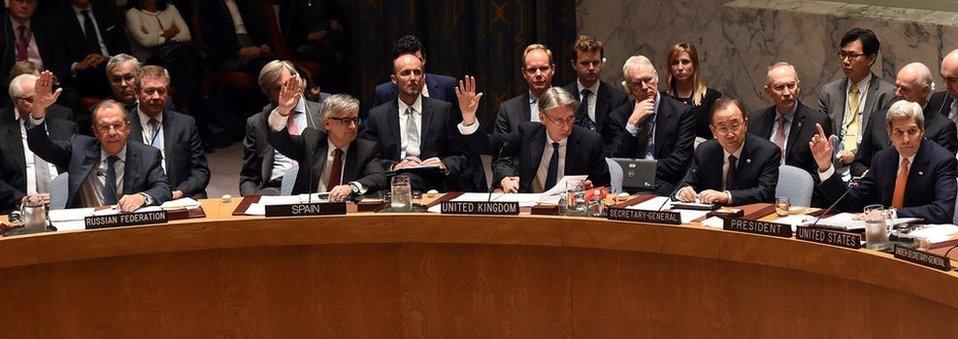Syrian war: Russia capable of more, says Putin
- Published

Russia is carrying out air strikes against Syrian rebels from its base in Latakia province
Vladimir Putin has said Russia is using "far from everything we are capable of" in its military operations in Syria.
"We also have other things as well and will use them if necessary," the Russian president said.
Mr Putin was speaking a day after the UN Security Council endorsed a peace plan for the war-torn nation, including calls for a ceasefire.
The Syrian war, heading into its fifth year, has killed more than 250,000 people and displaced millions more.
The resolution, passed unanimously by the UN Security Council, sets out a timetable for formal talks and a unity government within six months, external,
However, the resolution makes no mention of the future role of Syrian President Bashar al-Assad.
Western countries have called for his departure, but Russia and China say he should not be required to leave power as a precondition for peace talks.
Russia - a key ally of the Syrian president - has previously blocked resolutions critical of Mr Assad at the UN Security Council and has continued to supply weapons to the Syrian military despite international criticism.
In September Russian forces began launching air strikes against rebels, saying the so-called Islamic State (IS) and "all terrorists" were targets. However, Western-backed groups were reported to have been hit.


UN Security Council Resolution on Syria (No. 2254)
Calls for ceasefire and formal talks on a political transition to start in early January
Groups seen as "terrorist", including Islamic State and al-Nusra Front, are excluded
"Offensive and defensive actions" against such groups - a reference to air strikes by US-led coalition and Russia - to continue
UN chief Ban Ki-moon to report by 18 January on how to monitor ceasefire
"Credible, inclusive and non-sectarian governance" to be established within six months
"Free and fair elections" under UN supervision to be held within 18 months
Political transition should be Syrian-led

The resolution passed at the UN in New York on Friday foresees talks between the Syrian government and opposition in early January.
The plan sets out a timetable for UN-supervised elections within 18 months, and stresses that the Syrian people will decide the future of their country.
The plan also calls for a ceasefire, but there is also disagreement over which armed groups should be designated as terrorists and consequently excluded from any talks or ceasefire.
Actions against groups considered terrorist organisations would not be affected, allowing Russian, French and US air strikes against Islamic State to continue.
The agreement demands that all parties cease attacks against civilians.